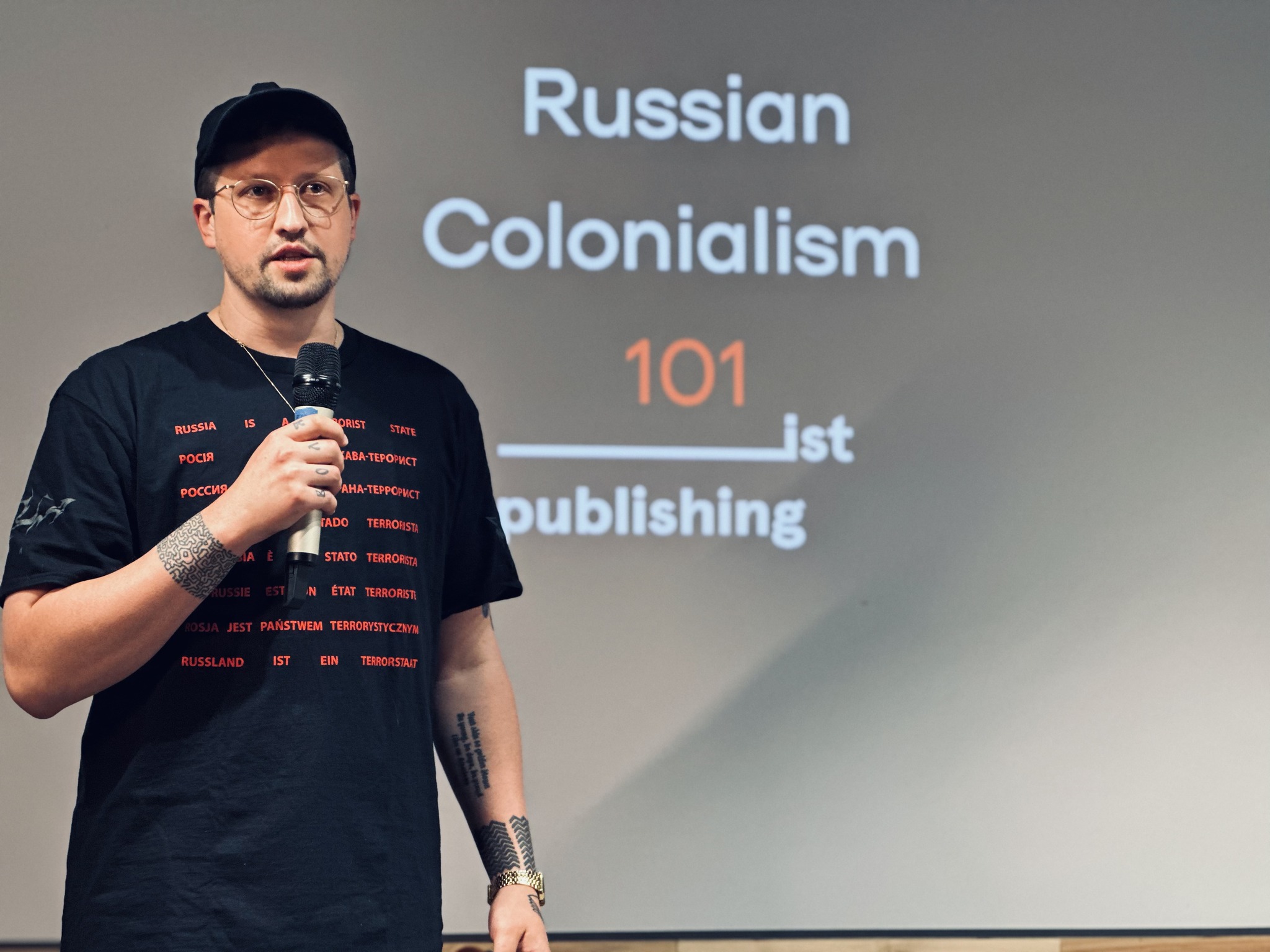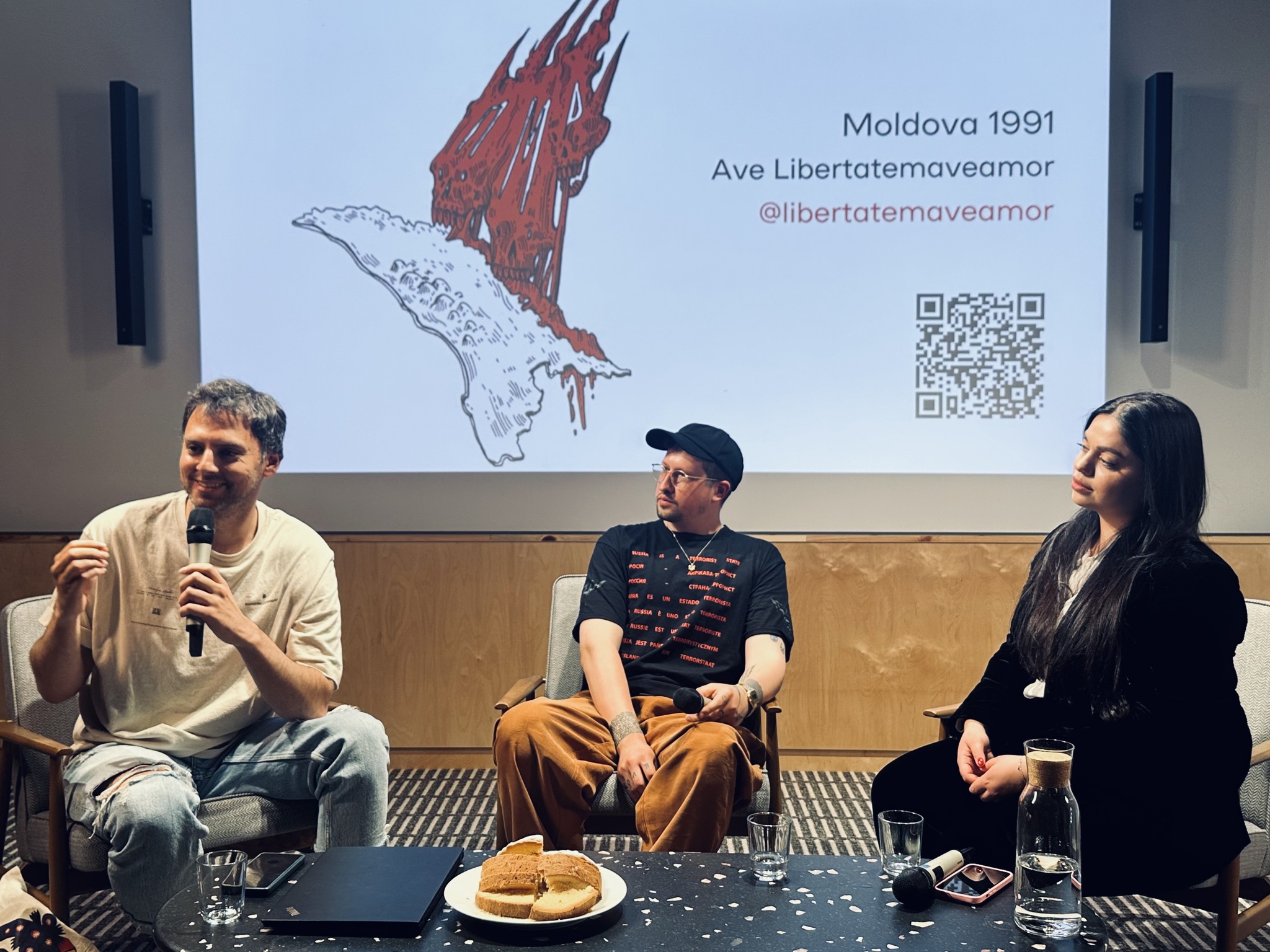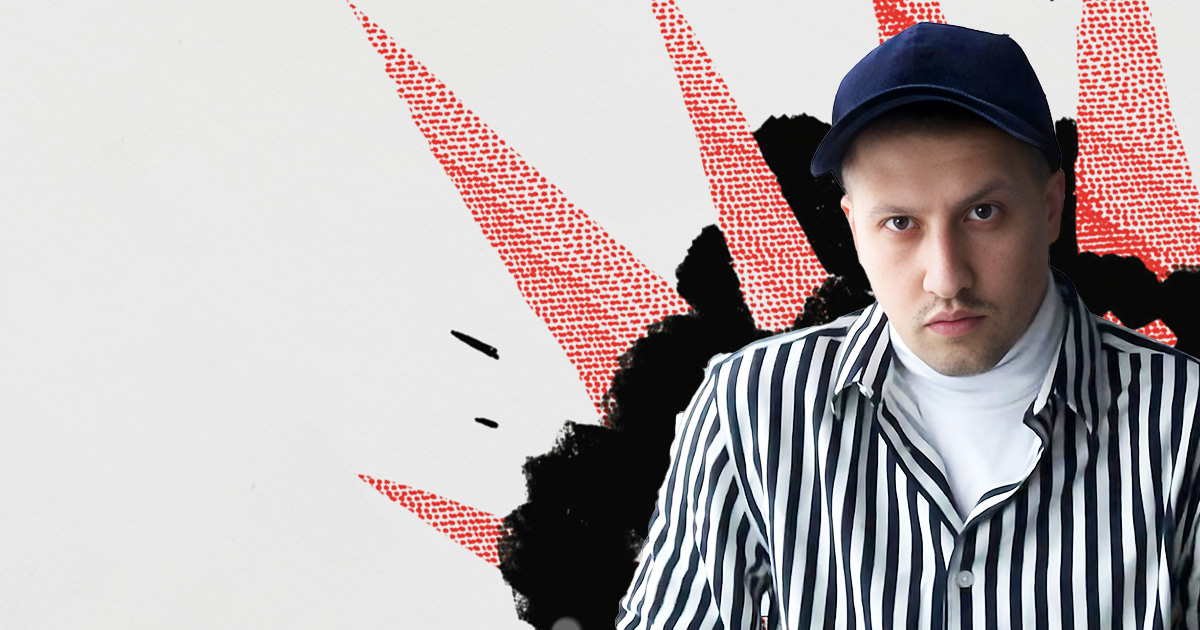"We have never been taught our history. It has always been told to us through the prism of Russian c
Maksym Eristavi is a Ukrainian independent journalist, a media expert, a civil society leader, and the author of a book entitled "Russian colonialism 101" which he recently presented in Berlin. In his book, Eristavi tries to publicly speak on the matter of crimes of the Russian colonialism and its consequences for colonised nations, including Ukraine.
During his presentation in Berlin, we have had a chance to talk to Maksym about the perception of Russian colonialism by the Western audience, about the impact of Russian propaganda in Europe, and about how important it is to hear the Ukrainian voice abroad. About the Ukrainian and the Romani identity of the author, and why is it that our voice continues to be one of the main voices among others.
«We are talking generations, centuries of ultra-hard Russian propaganda»
– Tell us Maksym, has the opinion of the Western audience changed much over these three years of full-scale Russian invasion? If it has, then in which way has it?
– Well there’s a 100% certainty that it has—albeit not in the way we would love to have it. We are talking generations, centuries of ultra-hard Russian propaganda. The times of the Russian Empire, of the Soviet Union, of Putin’s power. All of the peculiarities of our history and our history in general has never been told by us but always by them: in those narratives which the colonisers needed and through the prism which the colonisers wanted.
Thus, we need to do a lot in order to change that. Although, this process is already in motion. Back when I started working with this topic as a journalist, many people from the Western audience used to mock us, like, how is this a topic for the in-depth work. Then,one could hardly have imagined that this discourse would give birth to a book or a number of events. Although people still leave their questions through the prism of the Russian propaganda. This is something we should be working on.

– How do you reckon, is it the topic of Russian colonialism worth discussing within our country?
– Well, first and foremost, we have a book in the Ukrainian language. That said, I can see that intense discussions are underway in Ukraine on the said topic. Myself, as a representative of the Ukrainian diaspora, I have little to say to Ukrainians as they are already talking about it and discussing it. I can observe my friends and colleagues involved in the intense topic of the Russian colonialism. The only thing I can add to the topic is the fact that there were many, many victims of the empire: different nations, communities, people who have gone through it.
In this way, one can get a deeper understanding and a clearer vision of how empires fell once the colonised people started to aspire to get rid of the imperial influence. At the present moment, Ukraine is going through a very important period of its history.
– Contemporary Germany has recontemplated its Nazi past. How do you reckon, will the Russian Federation be able to do the same?
– I try not to think too much about the Russians. Whenever I mention them, I stress the fact that these are empire-minded people. I certainly detect no discourse inside the country, particularly among those who are making decisions: I mean ethnic Russian. Neither do I detect any discourse or disagreement in the communities of overseas Russians.
Therein lies the problem: the Russian empire myth only exists in the imagined and distorted understanding of the fact that empires always exist. As Timothy Snyder has recently said, “The greatest myth of an empire consists in the fact that they think that empires have never been broken apart”. That is, of course, far from being true. If the Russians are not ready to even fathom being “ethnic Russian without an empire” — then I do not think that they are ready for any kind of progress—particularly to something that is not inherently evil: something non-fascist and non-colonial.

Photo (left to right): Janusz Panchenko, ethnographer; Maksym Eristavi, writer; Natali Tomenko, Deputy Director of ARCA
– One of your projects aimed at a Western listener is an English-language podcast entitled The Ukrainian Space: the Ukrainian voices addressing the world, the foreign audience. Could you tell us more about this project please?
– In this project, my team and me have tried to show the Ukrainianness through the peculiarities of stories told by individual people. Me and Valeriia Voshchevska, an activist, were very frustrated by the fact that all of the conversations abroad were taking place without Ukrainians and that there were no stories of individual people whereby a bridge of stories could have been built: stories about women, about the colour of Ukrainians, about LGBT+ Ukrainians who are struggling and creating the modern-day context of their country. We want to show this particular part more distinctively, more deeply, to present our mosaicity.
Feedback on this project still resonates quite loudly. It testifies to the fact that the broader audience has a better understanding of our identity and that we may be of different backgrounds but be united in our Ukrainianness.
Besides podcasts, we have also teamed up with Ukrainska Pravda media outlet as we have launched a cycle of projects with an intention to debunk myths of the Russian propaganda and of the entire imperial machine. The principal idea of these projects is to mystify Russian colonialism. We would, of course, prefer these conversations to become popular and widespread everywhere, including the Global South.
So far, we have been focused on this entire discourse and the optics of this vision for the European listener. And the interest towards these conversations has also grown considerably.
«Ukrainians are showing their everyday struggle, as they are proving to be a nation fighting for their country»
– Let us talk about identity: you have Vantage Roma roots; you have lived abroad for many years now and you identify as a Ukrainian journalist, first and foremost. Do you think you can crystallise at least one dominant identity in yourself?
– That would be the Ukrainian identity, first and foremost. By and large, I originate from the Southern Ukraine which, alongside Eastern Ukraine, has perhaps suffered most from he Russian colonialism. Many families were exterminated, a lot of evil was committed, and there is a lot of pain. My family was not an exception. Some of my relatives have simply vanished. Hence it is quite difficult to get to the roots of the facts.
Who are you, whence do you come? Following the breadcrumbs of information, I have been able to ascertain that I have some Georgian, some Romani, and some Kyrgyz roots. As far as our roots are concerned, our entire family has been pretty much a motley crew. As I have been delving into our family history, I have always had plenty of questions and I have often failed to find answers to these questions. It was only after the Revolution of Dignity, that I—as a queer person—have been able to understand that my identity is Ukrainian first, and that this is my home where I have accumulated plenty of things. And it is here that everything has its meaning.
There are many identities in Ukraine; our history is pretty mosaic. Many people come from different gender, ethnic, or social backgrounds—but it is important to understand that it is now that our Ukrainian identity is the modern and the most important one. It is about common values we unite around. Next go all of our supplementary identities—which we can fit to ourselves, depending upon the situation and family stories.
My grandad had Romani origin but I know almost nothing about this part of my heritage. It is without any doubt that I wish to get to know more about this interesting and important part of my family's story. Or, after all, about myself. Now, though, the question is about protection of Ukraine and our life on the planet. It is then that we will be able to justifiably contemplate and look for identities inside you of which each of our personalities and each of our collective stories is comprised.

– And the last question. What is the primary message which you wish to bring to the attention of Ukrainians today?
– The Ukrainian resistance motivates the Western audience to see more about Ukrainians. Ukrainians are showing their everyday struggle, as they are proving to be a nation fighting for their country. For democracy. For the values. For the possibility to exist. And this interest is something that constitutes a great boost for the Western partners in order to help Ukrainians more.
At the same time, it is pretty tragic that people risk their own life and health in order to do that. On the other hand, it may seem that Ukraine has been fallen out of context in world news. That, however, is not the case. What my optics tell me is that those who have been supporting Ukraine since the beginning of the full-scale Russian invasion continue to do so today. We are really getting a lot of support even today. And that is something that all Ukrainians who continue their struggle should remember.
See also
- Репортажистка Єва Райська: «Через звичайні людські історії я хотіла показати глибші процеси».
- Новий центр підтримки ромів у Сумах: хто отримає шанс на освіту
- Письменниця Тімея Шрек: «Життя так склалося, що повертаюся до коренів».
- Танцівниця Вікторія Чорна: «Саме ромський танок допомагає людям просто вижити»
- Громадські активісти і дослідники — про ромську мову, перспективи розвитку та загрози
- Лінгвіст Михайло Ослон: «За свої мови носіям зазвичай доводиться боротися самотужки».
- Музикант Віллі Пап-молодший: «Американський джаз або ромський джаз...»
- Художник Тиберій Йонаш: «У моїх планах відкрити величезний центр у ромській громаді»
- Психотерапевтка Ольга Голубицька: «Ти є людиною, яка варта уваги».
- Другий шанс на освіту. Або як працюють інтеграційні центри для ромів